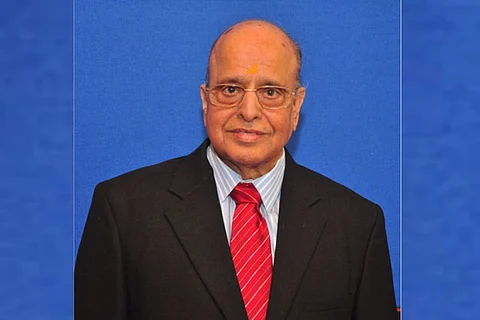

K Kasturirangan, one of India’s most distinguished space scientists and the former chairman of the Indian Space Research Organisation (ISRO), passed away at his residence in Bengaluru on Friday morning, April 25. He was 84.
According to a statement issued by ISRO, Kasturirangan breathed his last at 10:43 am. His body will be laid out at the Raman Research Institute in Bengaluru on Sunday, April 27, between 10 am and noon, for members of the public to pay their final respects.
A towering figure in India’s space journey, Kasturirangan helmed ISRO, the Space Commission, and the Department of Space for over nine years until he stepped down on August 27, 2003. During his tenure, he oversaw landmark missions, including the operationalisation of the Polar Satellite Launch Vehicle (PSLV) and the development of the Geosynchronous Satellite Launch Vehicle (GSLV).
The Kasturirangan panel on Western Ghats recommended complete ban on mining, quarrying and sand mining in environmentally sensitive areas. It was opposed strongly by many in Kerala and Karnataka as the panel made several other recommendations including stopping cultivation of monocrops. Both the Kasturirangan panel and Madhav Gadgil committee recommendations were not implemented.
He played a pivotal role in developing India’s remote sensing capabilities, serving as the Project Director for the Bhaskara I and II satellites — the country’s first earth observation missions. As Director of the ISRO Satellite Centre, he led the development of INSAT-2, IRS-1A/1B, and a range of scientific satellites.
An astrophysicist by training, Kasturirangan’s research work in high-energy X-ray and gamma-ray astronomy contributed significantly to India’s scientific understanding of cosmic phenomena and their interaction with the Earth’s atmosphere.
Beyond space science, he was instrumental in shaping India’s educational landscape. As the architect of the National Education Policy (NEP), he chaired the committee that proposed sweeping reforms in school and higher education. He also served as Chancellor of Jawaharlal Nehru University, Chairman of the Karnataka Knowledge Commission, a member of the Planning Commission, and a nominated Rajya Sabha MP from 2003 to 2009.
In recognition of his vast contributions, he was honoured with the Padma Shri, Padma Bhushan, and Padma Vibhushan — some of the highest civilian awards in India.